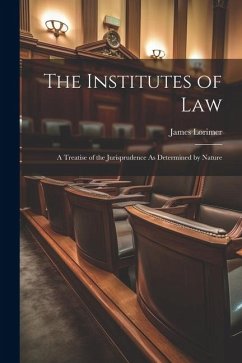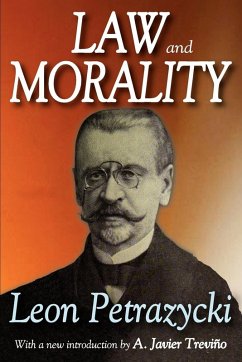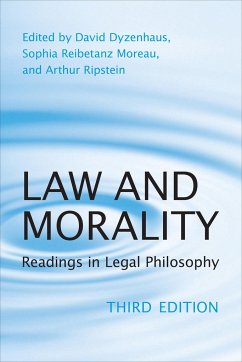
Where Law and Morality Meet

PAYBACK Punkte
35 °P sammeln!
How are law and morality connected, how do they interact, and in what ways are they distinct? These questions have been a fundamental concern in the modern analytic philosophy of law. In Where Law and Morality Meet Matthew Kramer reviews the most influential accounts of legal and moral reasoning and presents his own conception of whether moral principles should be incorporated into a concept of law. In Part One, Kramer argues that moral principles can enter into the law of any jurisdiction. He contends that legal officials can invoke moral principles as laws for resolving disputes, and that th...
How are law and morality connected, how do they interact, and in what ways are they distinct? These questions have been a fundamental concern in the modern analytic philosophy of law. In Where Law and Morality Meet Matthew Kramer reviews the most influential accounts of legal and moral reasoning and presents his own conception of whether moral principles should be incorporated into a concept of law. In Part One, Kramer argues that moral principles can enter into the law of any jurisdiction. He contends that legal officials can invoke moral principles as laws for resolving disputes, and that they can also invoke them as threshold tests which ordinary laws must satisfy. In opposition to many other theorists, Kramer argues that these functions of moral principles are consistent with the essential characteristics of any legal system. Part Two reaffirms the legal positivist argument that law and morality are separable, arguing against the position of natural-law theory, which portrays legal requirements as a species of moral requirements. Kramer contends that even though the existence of a legal system in any sizeable society is essential for the realization of fundamental moral values, law is not inherently moral either in its effects or in its motivational underpinnings. In the final part, Kramer contests the widespread view that people whose conduct is meticulously careful cannot be held morally responsible for harmful effects of their actions. Through this argument, he reveals that fault-independent liability is present even more prominently in morality than in the law.














